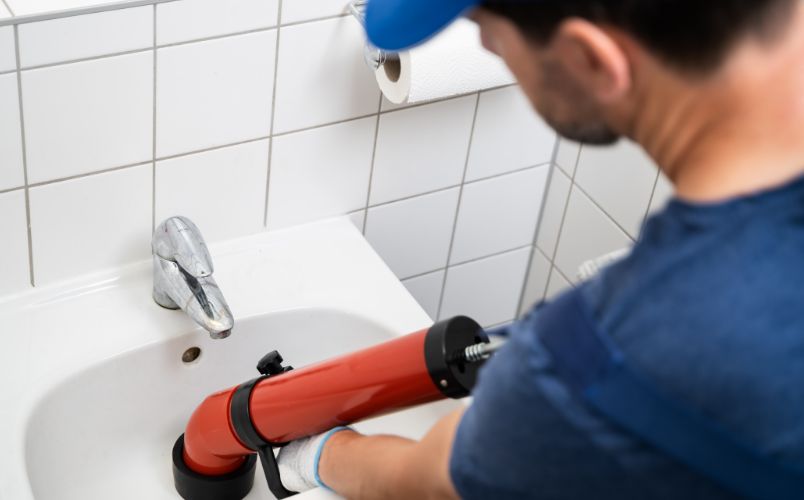Drain Cleaning and Pipe Maintenance: A Comprehensive Approach
الجسم

Maintaining the integrity of your plumbing system is crucial for ensuring a safe and comfortable living environment. Regular drain cleaning and pipe maintenance can prevent costly repairs and extend the lifespan of your plumbing infrastructure. This comprehensive approach will delve into the importance of these practices, methods to implement them, and tips for maintaining a healthy plumbing system.
The Importance of Regular Drain Cleaning
Regular drain cleaning is essential for preventing clogs and blockages that can lead to more serious plumbing issues. Over time, debris such as hair, grease, soap scum, and food particles can accumulate in your drains, creating blockages that hinder the flow of water. When left unchecked, these blockages can cause water to back up into sinks, showers, and tubs, leading to water damage and potential health hazards due to mold and bacteria growth.
Additionally, regular drain cleaning helps maintain the efficiency of your plumbing system. Clear drains allow water to flow smoothly, reducing the risk of pressure buildup that can cause pipes to burst or leak. By keeping your drains clean, you ensure that your plumbing system operates at its optimal performance, saving you time, money, and inconvenience in the long run.
Effective Methods for Drain Cleaning
There are several effective methods for cleaning drains, ranging from simple DIY solutions to professional services. Here are some common techniques:
DIY Solutions
- Boiling Water: Pouring boiling water down the drain can help dissolve minor blockages caused by grease and soap scum.
- Baking Soda and Vinegar: A combination of baking soda and vinegar creates a chemical reaction that can break down organic matter in the drain.
- Plunger: Using a plunger can dislodge minor clogs in sinks and toilets.
Chemical Cleaners
Chemical drain cleaners are widely available and can be effective in removing tough clogs. However, they should be used with caution as they can be harsh on pipes and harmful to the environment. It is advisable to use them sparingly and follow the manufacturer's instructions carefully.
Professional Drain Cleaning Services
For severe or persistent clogs, professional drain cleaning services are recommended. Plumbers use specialized tools such as drain snakes, hydro-jetting, and camera inspections to effectively clear blockages and assess the condition of your pipes. Regular professional cleaning can help identify potential issues before they escalate into major problems.
Pipe Maintenance: Prevention is Key
While regular drain cleaning is essential, maintaining the overall health of your pipes is equally important. Here are some tips for effective pipe maintenance:
Routine Inspections
Conducting routine inspections of your plumbing system can help identify early signs of wear and tear, leaks, or corrosion. Look for damp spots, rust, or unusual noises coming from your pipes. Early detection of issues can prevent costly repairs and extend the lifespan of your plumbing system.
Proper Use of Drains
Be mindful of what you put down your drains. Avoid disposing of grease, oil, coffee grounds, and fibrous foods like celery and potato peels in the kitchen sink. In the bathroom, use drain guards to catch hair and soap scum, and avoid flushing items like wipes, sanitary products, and cotton balls down the toilet.
Water Pressure Management
Excessive water pressure can strain your pipes and lead to leaks or bursts. Ensure your home's water pressure is within the recommended range (usually between 40-60 psi). Installing a pressure regulator can help maintain safe water pressure levels.
Winter Precautions
In colder climates, take precautions to prevent your pipes from freezing during winter. Insulate exposed pipes, keep your home adequately heated, and let faucets drip during extreme cold to prevent pressure buildup and pipe bursts.
The Benefits of a Comprehensive Approach
Adopting a comprehensive approach to drain cleaning and pipe maintenance offers numerous benefits. It ensures the longevity and efficiency of your plumbing system, reduces the risk of costly repairs, and provides peace of mind knowing that your home is protected from potential water damage. By integrating regular maintenance practices into your routine, you can enjoy a safe, healthy, and well-functioning plumbing system year-round.
Conclusion
The importance of regular drain cleaning and pipe maintenance cannot be overstated. By employing effective cleaning methods, conducting routine inspections, and adhering to best practices for pipe care, homeowners can prevent plumbing issues and ensure their systems operate smoothly. A little effort in maintenance today can save significant time, money, and stress in the future.






تعليقات